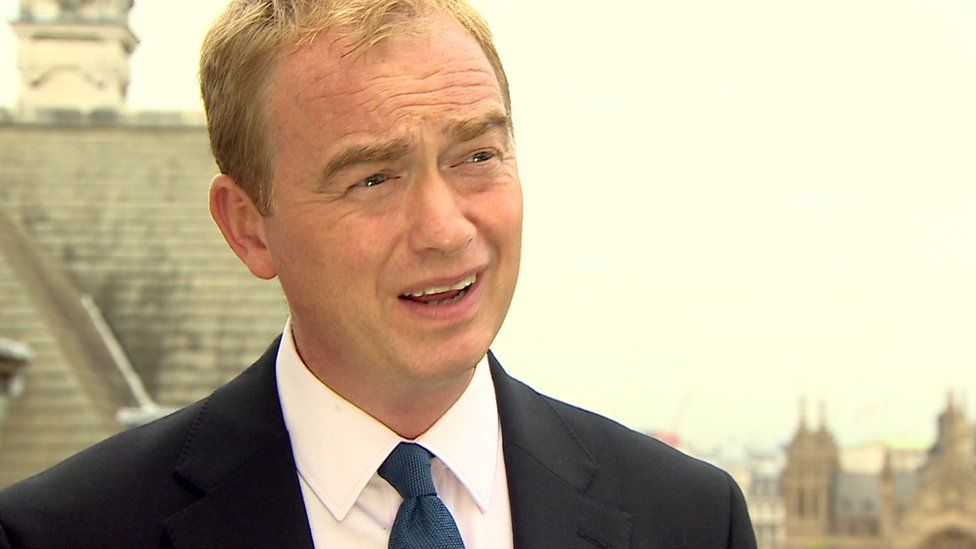Lib Dem membership tops 100,000 after snap election call
-
Published

Lib Dem membership has passed the 100,000 mark following a surge of new joiners since Theresa May announced a snap general election.
The party said it has signed up 12,500 new members since last week - and is expected to reach its highest total in its history "within days".
Leader Tim Farron said Lib Dems are the only party opposing Mrs May's "hard Brexit agenda".
He insisted the party would not enter a coalition with the Tories or Labour.
The biggest membership number the Lib Dems have had since their formation was 101,768 members in 1994.
The recent flurry of interest means more than 50,000 members have joined since last year's European referendum - and more than 67,500 since the party's electoral low point, at the 2015 general election.
Mr Farron, who pledged to build the membership to 100,000 when he became leader in 2015, said reaching the goal "tells us that there's an appetite for change in British politics and Liberal Democrats are the vehicle for that change".
He said: "People want a strong opposition to Theresa May's hard Brexit agenda and the Liberal Democrats are the only party challenging them up and down the country."
In an appeal to would-be supporters, he said: "This election is your chance to change the direction of our country. If you want to stop a disastrous hard Brexit, if you want to keep Britain in the single market, if you want a strong opposition to fight for an open, tolerant and united Britain - this is your chance."
The Lib Dem leader also repeated his insistence that there are "no circumstances whatsoever" that the party will go in to a coalition with the Conservatives or Labour after the 8 June election, given the current approaches of those two parties.
He also dismissed an informal arrangement to offer his party's support on budget measures and other key votes to help a minority Tory or Labour administration.
On Sunday he told ITV's Peston on Sunday: "What Britain needs in this election is clarity and a contest. Theresa May has called this election because she believes it'll be a coronation.
"The Liberal Democrats are determined to make it a contest with a clear alternative position, and I don't want people thinking a vote for the Liberal Democrats is a proxy for anything else."